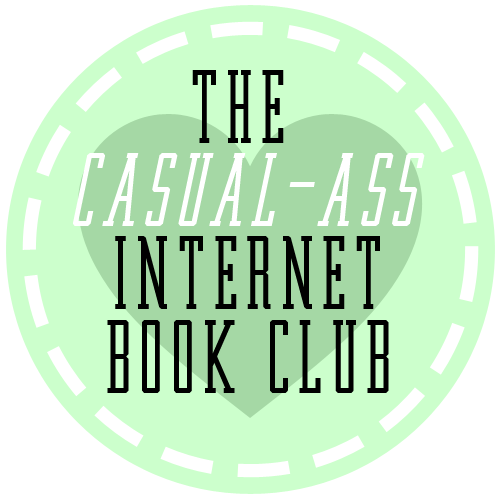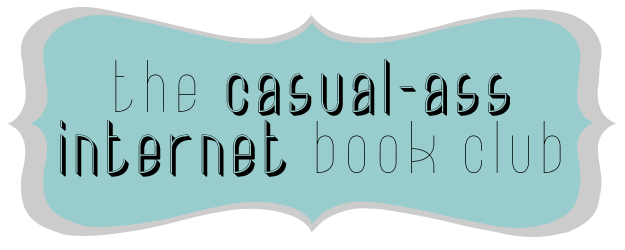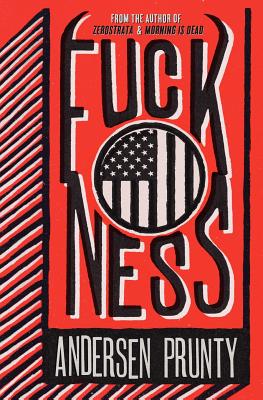

|
|
||
  I followed through on my own project! And read my book for The Casual-Ass Internet Book Club! Even if I’m probably the only one!  Unfortunately, when I sit down to write or even talk about something I’ve read, I usually just go “THE SENTENCES AND HOW THEY MADE WORDS?! BUT ALSO IT WAS NOT LIKE… EXPECTATIONS?!?!”  Internet! We need to have a conversation! A conversation about sex toys! I bought my first sex toy when I was 18. I was in a sex shop on Santa Monica Boulevard with some of my friends. It was March, I think, and everyone was under 18 except me. We spent most of our time in the shop giggling and deciding whether or not we were going to get a psychic reading down the street. I bought one of those boring hard plastic ones — in zebra print — and one for each of my two best friends — in leopard and tiger of course — with the money I earned at my after school tutoring job. It was fun and funny and anti-climactic. That vibrator lasted for a super long time, but it most definitely wasn’t the last sex toy I bought. I’ve ordered sex toys from all over the internet and bought other ones at The Toy Box on other giggling, joyful trips with friends and roommates. I have used sex toys! I have bought sex toys as gifts! I have shared sex toys with partners! Sex toys are cool! And they can make your life better! You should buy a sex toy if it interests you! You shouldn’t be ashamed or embarrassed! Though that part of the conversation is important — we should be no more ashamed of sex toys than we are of sex and we should be way less ashamed of sex than we are — the real crux of this conversation is this:  This is a great, comprehensive post about the various materials you’re going to see in sex toys and how you should use and care for them. She covers the porous materials (jelly, TPE/TPR, rubber) because they’re extremely common, but were that post mine, it would just say, “If you have a porous toy, throw it away.” Porous toys are gross and potentially dangerous. They smell bad, they can leech dye onto anything they touch, they off-gas like crazy. You always need to use a condom with them, they never really come clean, and they might cause an allergic reaction for your genitals. If you have a porous toy, destroy it. No, really. Take pictures! Add to the Crystal Delights Wall of Shame. And then buy yourself something that’s actually worth your money and time. Your genitals are your friends! Give them what they deserve and stop buying into shitty companies who care so little about your well-being that they label everything “For Novelty Use Only” and don’t warn you about the dangers of their cheap materials. Buy silicone! Buy wood! Buy aluminum! Buy stainless steel! Buy hard non-porous plastic if you must! Just don’t buy TPR/TPE, jelly, or rubber. Don’t buy porous toys! Hitachi Magic Wand [amazon] Lelo Liv [amazon] Lelo Mona 2 [amazon] Njoy Pure Wand [amazon] Luxotiq Athena [amazon] Tantus Mikey O2 [amazon] Tantus Goddess [amazon] Tantus Cush O2 [amazon] Je Joue G-Ki [babeland] Fucking Sculptures Corkscrew Fucking Sculptures G-Spoon If all those fail you, go here and start reading. She’ll get you to something you want. If you’re on the market for a traditional rabbit, you’re kind of out of luck. Most are made with porous materials because they’re cheap and flexible. If you’re looking for a rabbit in silicone there are a couple, but they’re from those “novelty” companies and I don’t want to give them my trust or money. So really, if you’re able, just use two toys. I’m the laziest, more uncoordinated person alive and I can promise it’s not that bad. If you’re really desperate for a single unit, there are some decent options. There’s the Vitality by Leaf [amazon] and Lelo’s Ina 2 [amazon] and Soraya [amazon] and Jopen’s got several [amazon] but the majority are just dual-stim vibrators and aren’t going to have the rotation that rabbits are known for. [ETA: Hope is not lost! Kira adds, “Jopen actually makes a number of rotating silicone rabbits, but you’ll pay out the ass for them. The Vr7, Vr10, Vr11, Vr12, Vr10.5, Vr15, Vr16, and Vr17 are all rotating. I have the 7 and 15. The 15 is one of my all time favorite toys EVER.” If money’s a worry, Epiphora‘s got a great list of budget-friendly toys and I can personally recommend the Turbo Glider (ahh, college) and the Tantus Echo which is on closeout right now for $19.99. Twenty bucks for a beautifully designed, cool-as-hell looking, wonderfully textured, all-silicone dildo from an awesome manufacturer that loves their customers. There’s also the Charmer if you’re looking for something smaller. Basically, what I’m saying is: Sex is cool. Sex toys are great. Poke around and find something you like. For the love of all things beautiful and pure, don’t buy anything made from a porous material. Stick to the good stuff. Spend a little. You and your genitals are so, so worth it.  the weepies, “not your year”  Every new year I think, “This year will be better!” and every year end I think, “Wow, this year was awful, wasn’t it?” and, honestly, after so many of those years I have no idea what constitutes a good year or a bad year. Years are made up of good and bad and stuff, always, and maybe this time I’ll retain that knowledge and stop holding out hope for a year that sucks less? Is this growing up? Am I an adult now? 2012 wasn’t any different. You were okay, I guess? You got me engaged early on and a sweet freelance gig at the end, but you also moved me to North Dakota in the middle, so I still kind of want to scream “Fuck you” loudly and at length into your face. Were you a person, I would strike you with a heavy hand and then probably feel really bad about it and cry while clinging to your lower legs and begging forgiveness. I’d probably be drunk at the time, if that makes you feel any better about it. Anyway, thanks for the good times! And burn in hell for the bad ones. And thanks to my bad memory for making both kinds and all the ones in the middle pretty hazy. It’s hard to have a bad year when you can’t remember jack shit. Peace out, 2k12. Keep it real. – Ash  What am I supposed to say here? You haven’t even met me yet and I’m sure you’re already planning some fucked up shit to throw at me. You new guys are such dicks that way. But whatever, I guess I’m ready for whatever you got, so bring it on, 2k13! I’d prefer if you were bringing me, like, a relocation to Los Angeles, San Diego, Kansas City, Nashville, or Seattle and a full-time, well-paying job that I am naturally very good at and have little anxiety or stress about. And all that for my girlfriend too, please. We’d even settle for Portland! But since I imagine none of that is on the schedule for the coming year, I’ll just take a whole bunch of decent days, a few good ones, and as few bad ones as possible. Please? Thanks a bunch, dude. I’m sure you’re an okay guy, really. Being the new guy blows, especially when most of your predecessors have been disappointments. Before you get too down, though, remember that what that really means is that the bar is super low. Just aim for mediocrity, man, and you’ll have people all up your ass about how you were the best year ever. Good luck, dude! I believe in you. I guess. – Ash  Hey there! How are you? Are you feeling okay? The end of the year is a super stressful time for people because there are like a fuckton of holidays and lots of people around who say things that are kind of mean sometimes and you’re not supposed to get angry or weird about it because they’re usually people you love a lot and who wants to rock the boat like that? It’s all kind of awful stuff wrapped up in pretty ribbons and glitter and it sucks. It can ruin all the fun stuff! And who wants that? Nobody. Nobody wants their cool end of the year holidays ruined. I can’t control your holiday or how you feel. Hell, I can’t control how I feel most days. But I can hope that your holidays weren’t too bad and that your year was made up of a lot more good than bad or that the good at least made up for some of the bad. I can tell you that you’re awesome and you can believe me because it’s true. You’re reading this, aren’t you? Well then that means we probably kind of know each other and I don’t waste my time on people that aren’t awesome. End of story. You’re also beautiful and special and important and you deserve a 2013 as special and beautiful and awesome as you are. I can’t promise it’ll happen, but you better believe me when I say you deserve it. Can you promise me something though? Can you promise to take care of yourself in 2013? Like, just a little bit whenever you can. Like, have a Starbucks if it makes you happy or buy a DVD and then veg on your couch with it. Read an entire book in one sitting! Marathon a tv show! Take baths or fart when you’re alone in an elevator. Smile when you feel it and let yourself feel mad or sad or frustrated. Cry when you need to. You deserve to be happy, but when you can’t be, you have the right to feel all those things, whatever they are. Do what makes you feel good and stop being mean to yourself because you’re not living up to someone else’s bullshit expectations. Set your own bar low, reach above it whenever you can, be yourself — whoever you want that to be — and be kind to yourself. You’re wonderful. I love you. No, really. It’s true. I do. I’m a big person, I have room for you in here, right next to my heart. It’s okay, you can all squeeze in. Promise. – Ash Hey! Don’t forget to enter the giveaway, okay? Because I spent the end of 2012 thinking about all the best stuff that I watched/read/heard/bought this year and then subjecting absolutely anyone that would listen to me to my obnoxious opinions, I am feeling particularly grateful for both my media consumption and the cool-ass people I’ve met on the internet. The internet is great for this whole thing, you know? Shouting your opinions into the void as loudly as possible and, sometimes, getting a response back! There are other people in the void. Did you know that? Crazy. Anyway, inspired by this gratitude and by the awesome Jessica of The Belle Lumiere who sent a copy of The Fault In Our Stars winging my way the second I complained that I hadn’t read it yet and told me only to pay it forward, I’m having a giveaway!    – A one month subscription to Hulu Plus – A paperback copy of The Song of Achilles – A digital copy of Lavender Diamond’s Incorruptible Heart The Prize for a Winner Located outside the US: The Rules: That’s it! Comments will be open until 12am CST on January 7th 2013. The winner will be chosen at random using Random.org and contacted no later than 12pm CST January 7. If the winner does not respond within 24 hours of contact, a new winner will be chosen. + If the winner already owns a portion of the prize, substitutions can be made at my discretion. Update: The winner of my first ever giveaway is the awesome Rae from Say It Ain’t So who is one of my favorite bloggers (No, seriously, go look at the amaaaaaazing pictures of Louisville she posted!) and one of the most loyal readers and commenters I could ever hope to have! Congrats to her and thanks to everyone who entered! |
||